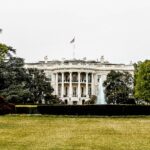The Government Shutdown Shouldn’t Shut Down our Lives
At 24 days, the current government shutdown has become the longest in the US’s history and shows no signs of being resolved. The consequences of the shutdown have had a major impact, not just for federal agencies, but for many in the private sector who are forced to rely on those agencies to do business.
Normally, a budget is passed each year by both houses of Congress, then signed into law by the president. When one or both houses fail to agree on a version of the budget, or the president refuses to sign, all but the most essential functions of the federal government are shut down until a compromise can be reached to establish the funding needed to reopen the government. In this case, the impasse came due to a dispute over President Donald Trump’s insistence on $5 billion in funding for a border wall and other immigration controls.
This shutdown affects more than just the roughly 800,000 federal workers currently going without pay. When the government insists on entangling itself in the everyday activities of individuals and businesses, a shutdown in Washington creates ripples felt across the country.
At the Food and Drug Administration, most of the approval processes for life-saving drugs and medical devices are grinding to a halt as the agency directs its limited resources to monitoring the safety of drugs already on the market. Meanwhile, the IRS’s inability to verify tax returns and W-2s prevents potential home buyers from closing, and could potentially mean a severe delay in income tax refunds as Americans begin filing their 2018 taxes.
Beer-lovers are out of luck as well; since the Alcohol and Tobacco Tax and Trade Bureau is no open to perform its government-mandated approval of new labels, breweries planning to introduce new beers will have to wait until the shutdown is ended and the backlog of requests is cleared.
Even true love isn’t safe from the shutdown as marriage licenses could no longer be issued at the federally-funded DC Superior Court until the city council rushed through emergency legislation to allow the mayor’s office to take over temporarily.
While a government shutdown might sound like a good thing, the consequences show that this is a poor way to promote limited government principles. In a recent New York Times column, Paul Krugman inaccurately refers to the shutdown as “Trump’s Big Libertarian Experiment,” but he later acknowledges that free-market solutions would take time and can’t be expected to spring up immediately after a shutdown. Further, the inevitable reopening of the government would more than likely force out those solutions, killing the incentive to invest in long-term alternatives.
However, the shutdown can still serve in many ways as a blueprint for free market advocates. We should take a long look at what government services are deemed nonessential, how the private sector can do it better, and what special interests are standing in the way, in order to better advocate for freedom and limited government.




